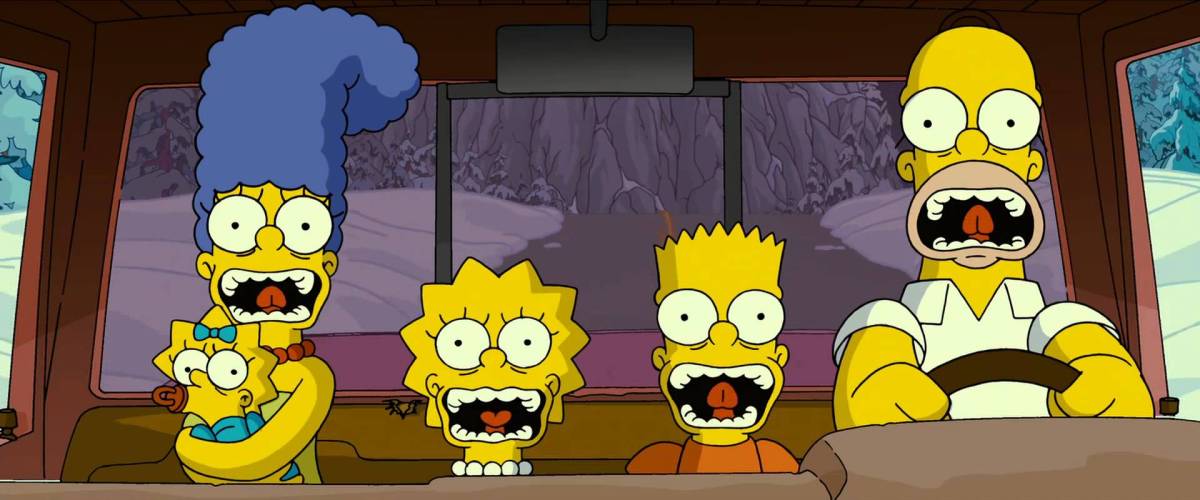When most people think about raunchy or controversial adult animation, their minds tend to go to shows like Family Guy and Rick & Morty. Of course, given their levels of off-the-wall content, it makes sense why that would be the case. It’s easy to forget that before those shows reached their current levels of infamy, there was one animated show that was considered “too much for TV.” That show is none other than The Simpsons.
Created by Matt Groening, The Simpsons premiered on Fox in 1989 and focuses on the fictional town of Springfield, where the title family members always seem to find themselves in funny situations that usually include the other colorful residents. The Simpsons aren’t just animated icons here in the U.S. ⏤ they’re international stars, widely recognized in dozens of countries worldwide. But even though The Simpsons is primarily loved in many countries for its hijinks and satirical content, not everyone agrees with some of said content.
Over the course of its 30-season run, The Simpsons has had its fair share of episodes that were considered “inappropriate” for certain audiences, especially in other countries. Some have been considered so controversial that they’ve actually been banned while others have gone so far as to cut specific scenes from being broadcast in the first place. Even in these ever-changing times, some of The Simpsons’ most recent episodes have been banned by certain countries shortly after premiering. What were these episodes, and why were they banned? Let’s break it down.
“Stark Raving Dad” (Season 3, Episode 1)

In this episode, one of The Simpsons’ most controversial, Homer is committed to a mental institution where he meets Leon Kompowski, a man who believes that he’s Michael Jackson (ironically, the character was actually voiced by Jackson under the pseudonym John Jay Smith). Due to all the controversy surrounding the pop icon after the 2019 documentary Leaving Neverland‘s allegations against him involving child sexual assault, the episode was pulled from circulation and currently cannot be found in The Simpsons collection in the Disney Plus library.
“Cape Feare” (Season 5, Episode 2)
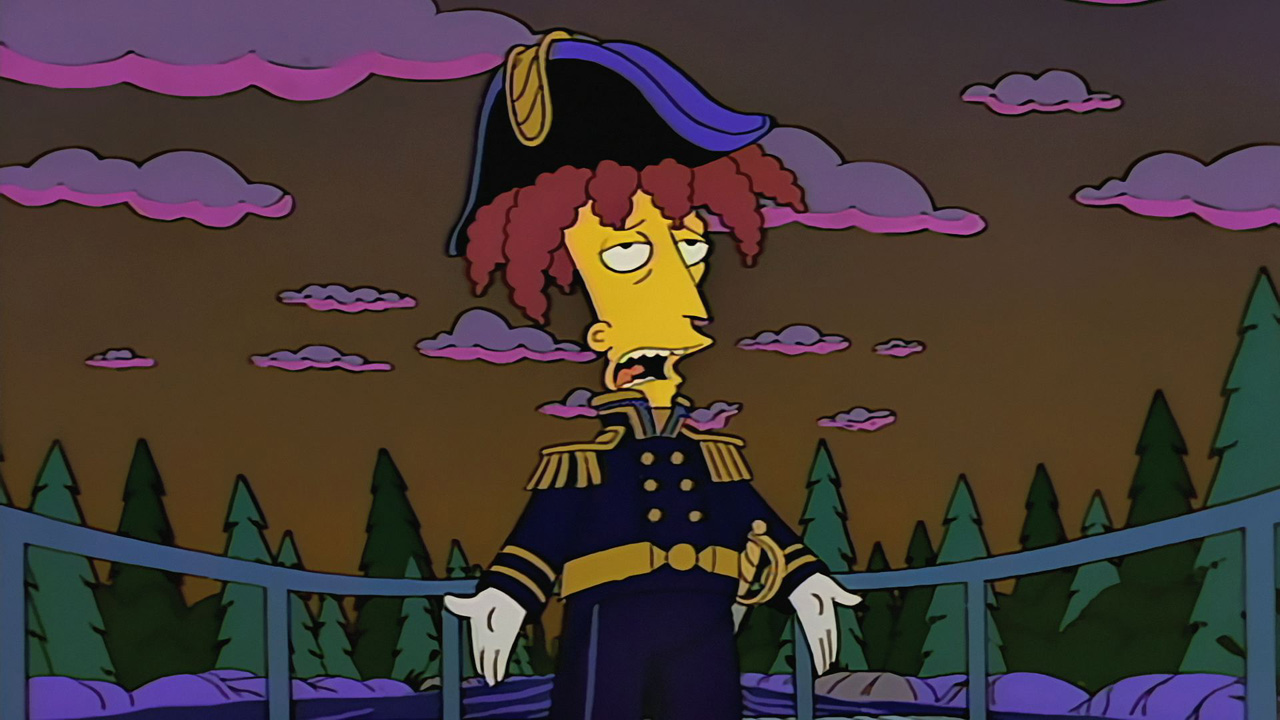
In “Cape Feare,” Sideshow Bob returns to get revenge on Bart after having his last plans destroyed by the child. In order to protect themselves, the Simpsons are forced to enter the Witness Relocation Program and move to Terror Lake (a play on Jason’s Camp Crystal Lake) for their safety, where Sideshow Bob follows them. The episode was seen as one of the show’s darker ones and ended up getting banned in Germany for depicting violence against a child and a character holding the ranking of Obergrupperfuehrer. If you’re wondering what that means, an announcer for the fictional news show Up Late With McBain shows up in the episode wearing an SS officer’s uniform, which was hugely taboo given Germany’s strict laws prohibiting the use of Nazi references and symbols except for educational or historic purposes.
“The City of New York vs. Homer Simpson” (Season 9, Episode 1)
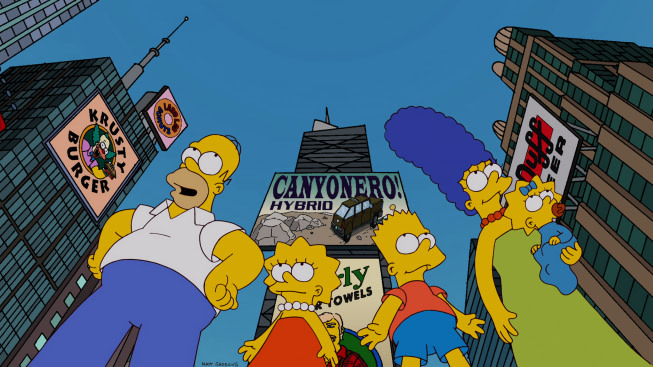
During a drunken night that finds Barney Gumble having to stay sober as the designated driver, he has a mental breakdown from alcohol withdrawal and drives Homer’s car to New York City after dropping him at home. Homer and the rest of the family travel to Manhattan to retrieve the car months later, but while the rest of the family has fun sightseeing, Homer has to fight against the city over the boot placed on the wheel of the car. After the 9-11 attacks, the episode was banned due to the prominence of the Twin Towers, and while it was brought back a couple of years later, some airings still cut all scenes of Homer near the Towers (including his unforgettable bathroom rush to them) while others left them but cut out the line “They stick all the jerks in Tower One.”
“The Cartridge Family” (Season 9, Episode 5)
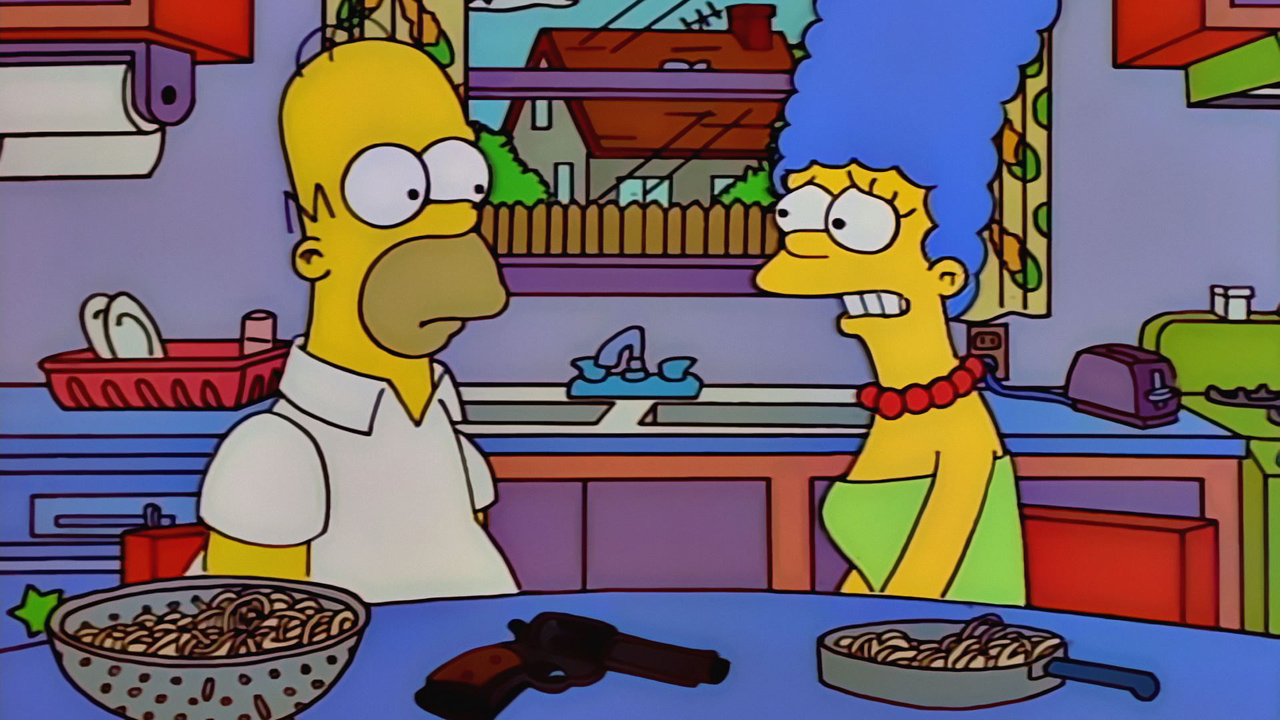
In this episode, Homer purchases a handgun to protect his family after they attend a soccer match that turns into a violent riot. Of course, this is Homer we’re talking about, and as usual he doesn’t handle the situation maturely. Being the guy that he is, he ends up casually carrying the gun everywhere and even fires it to help him to retrieve items from the roof. The episode was eventually banned in the U.K. due to the soccer riot and its depiction of guns in a comical and positive light, which the U.K. believed could encourage others into committing gun violence. The episode did still made it onto The Simpsons: Too Hot for TV ⏤ a collection of bad and heavily-edited episodes shown uncut and uncensored ⏤ as well as the season nine DVD set, both of which eventually made their way to the U.K.’s commercial market. The episode even eventually aired on the U.K.’s Sky Channel, but the final scene where Marge tries to get rid of the gun only to find herself entranced by its “coolness” is still edited to make it seem like she gets rid of it.
“Thirty Minutes Over Tokyo” (Season 10, Episode 23)
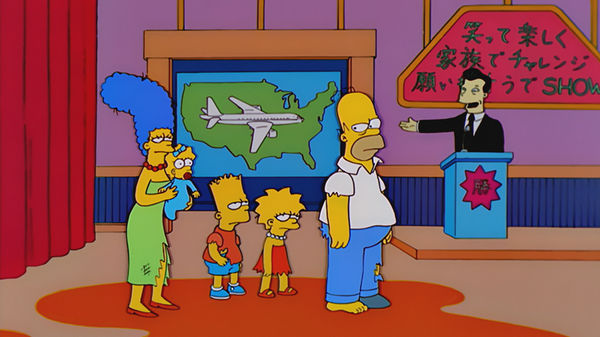
In “Thirty Minutes Over Tokyo,” the Simpsons find themselves in Japan without any money and decide to take part in a dangerous Japanese game show in exchange for plane tickets back to Springfield. The episode ended up getting banned in Japan due to having scenes that were considered offensive to Japanese culture, including a Hello Kitty factory scene that implied the company’s products were created by burning cats alive. Other scenes included The Battling Seizure Robot parody (which was seen as a reference to a Pokémon episode that caused 685 children to develop epileptic seizures) and Homer tossing a character portrayal of the then-actual Emperor Akihito in sumo thongs, not to mention the game show itself, which depicted the often cruel challenges that were prominent in typical Japanese game shows. Currently, the episode isn’t available on Disney Plus in Japan and was even banned in South Korea due to the country’s history with Japan. However, due to a change in the times, the episode was later allowed to be broadcast in 2007.
“Little Big Mom” (Season 11, Episode 10)
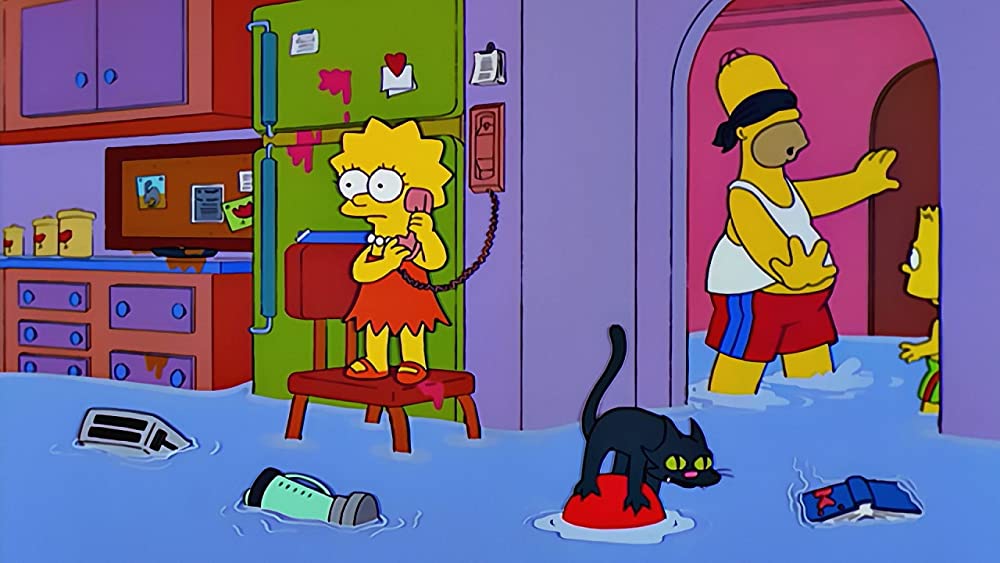
In this episode, Marge breaks her leg during a ski trip and has to stay in the hospital for a couple of days, leaving Lisa to take over her duties at home. Lisa, being the responsible girl that she is, makes a structured plan for Homer and Bart to help her out, but unfortunately they ignore her. Frustrated by their behavior, Lisa tricks them into thinking that they are severely sick with leprosy by painting parts of their bodies green with paint and oatmeal. Unfortunately, the episode was banned in Japan due to its leprosy subplot.
“Blame it on Lisa” (Season 13, Episode 15)
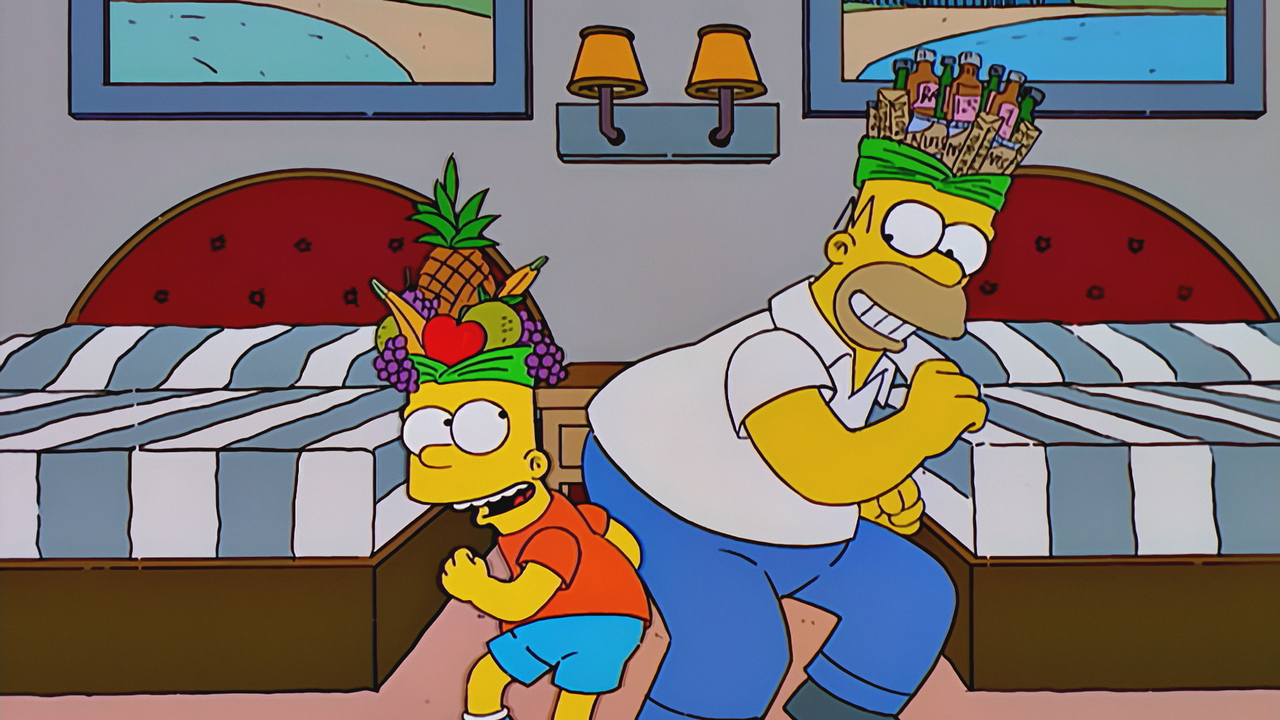
During the “Blame it on Lisa” episode, the Simpsons leave for Brazil to help Lisa find her sponsored orphan who had been reported missing. But Rio de Janeiro was not happy with the episode’s betrayal of Brazil and banned it from being aired for years. It was eventually broadcast in 2012 and was even featured on DVD in Brazil later on.
“Weekend at Burnsie’s” (Season 13, Episode 16)
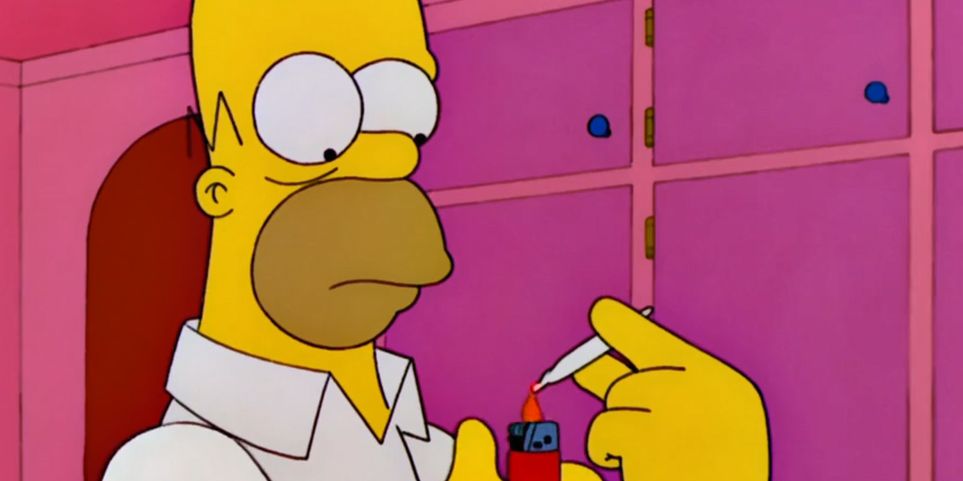
In “Weekend at Burnsie’s,” Homer is attacked by crows (who for some reason see him as their leader) and is prescribed medical marijuana to deal with the pain. The drug then changes Homer’s personality and indirectly earns him a promotion at work as the Executive Vice President of the Springfield Nuclear Power Plant. Apparently, the U.K. didn’t agree with all of the marijuana references and the scenes featuring Homer getting attacked by the crows (we’re still not sure why that was a thing, but okay), so the episode was banned for some time before it was finally allowed to air.
“Goo Goo Gai Pan” (Season 16, Episode 12)

In “Goo Goo Gai Pan,” the Simpsons head to China to accompany Selma on her quest to adopt a baby from a Chinese orphanage. However, the Chinese government only allows married couples to adopt. To bypass this, Selma (who is very single) has Homer act as her husband while Marge acts as Bart and Lisa’s nanny. The episode was eventually banned in China for the unflattering references to the country and currently isn’t available to stream on Disney Plus in Hong Kong, either.
“E Pluribus Wiggum” (Season 19, Episode 10)
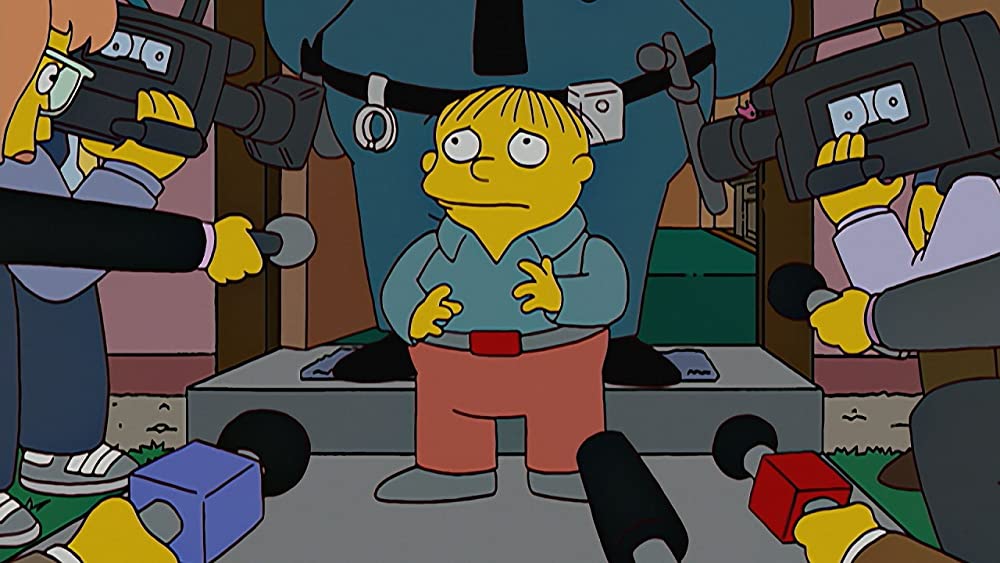
In this episode, Springfield becomes the site of the first presidential primary. When the residents get sick of all the presidential candidates sucking up to them, they decide to support their own write-in candidate: Ralph Wiggum. Unfortunately, the episode became banned in most of Latin America due to former Argentine President Juan Peron being mentioned as a dictator, when he was actually the only president in the country’s history to be elected democratically.
“A Made Maggie” (Season 33, Episode 10)
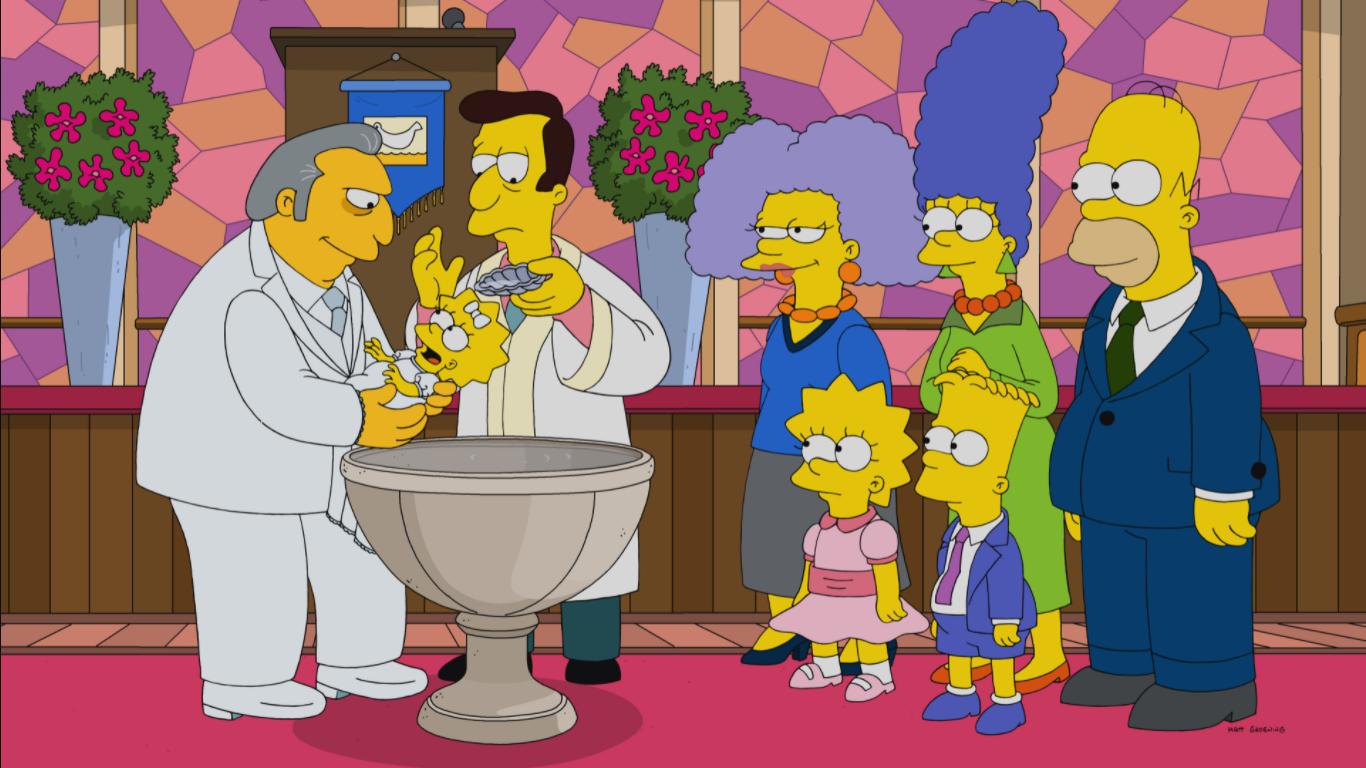
In “A Made Maggie,” Marge decides to finally baptize Maggie and sends Homer to find a suitable godfather. Of course, as it always is with Homer, that can be seen as a literal translation. So when Fat Tony ends up saving Homer and Maggie’s lives, Marge and Homer agree to let him be Maggie’s “Godfather.” Unfortunately, as the two begin to bond, Fat Tony starts to draw Maggie into his dangerous world, causing Homer and Marge to rethink their decision. For some reason, this episode has been banned in the Czech Republic although there hasn’t been any specific reason why. However, given the episode’s plot, one could surmise that it has something to do with the organized crime element.

